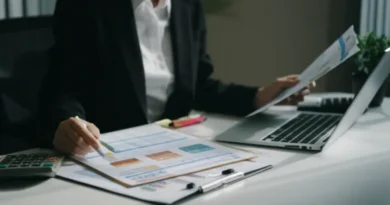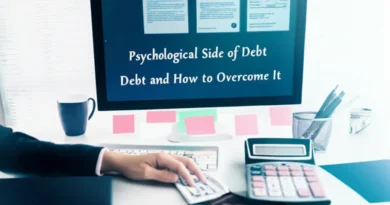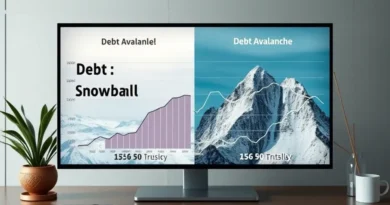What Happens If You Only Make Minimum Payments?
When it comes to managing credit card debt, many individuals find themselves tempted to breathe a sigh of relief upon making their minimum payment each month. It feels manageable, doesn’t it? The pressure of an immediate, large sum of money is lifted, but there are hidden consequences that come with this seemingly simple habit.
In this blog post, we will explore the implications of making only the minimum payments on your credit card debt, how it impacts your finances in both the short and long run, and some strategies to help you navigate the tricky waters of credit management.
Understanding Minimum Payments
Minimum payments are calculated as a small percentage of your outstanding balance, often accompanied by any additional interest charges. For most balances, this is typically between 1% and 3% of your current amount owed, depending on the credit card issuer. While paying the minimum amount may sound like a sound financial strategy, it can have severe repercussions.
1. Accumulating Interest
One of the most significant downsides of making only the minimum payment is the accrual of interest on your remaining balance. Credit cards generally have high-interest rates, often exceeding 20%. This means that your remaining balance continues to incur additional costs. Over time, you might find that you’ve paid more in interest than the original balance itself, locking you into a seemingly endless cycle of debt.
2. Prolonged Debt Repayment Time
Given how interest compounds, paying just the minimum can extend the duration required to pay off your debt substantially. For instance, if you owed $5,000 on a credit card with a 20% interest rate and only made the minimum monthly payments, it could take you over 10 years to pay off that balance. In that time, you may have paid thousands in interest alone.
3. Impact on Credit Score
Your credit report reflects how you manage your credit, including payment history, credit utilization, and the total balance on credit accounts. If you’re maintaining high credit card balances and making only minimum payments, your credit utilization ratio may remain above 30%. A higher ratio signals to creditors that you’re highly reliant on credit, which can negatively affect your credit score. A lower credit score can impact future loan approvals, interest rates, and even rental applications.
4. Financial Stress
Following a minimum payment strategy can create a psychological burden as well. Living with a significant amount of revolving credit card debt can amplify stress. The concern of accruing more debt from interest can disrupt your ability to focus on other important financial objectives, such as saving for retirement or funding a child’s education.
5. Financial Freedom Is Distant
By consistently making only minimum payments, you may be unwittingly trapping yourself in a cycle where financial freedom seems increasingly distant. The longer it takes to pay off your debt, the more challenging it could become to set aside money for investments or savings. You might find yourself stuck in an endless loop of minimizing payments, accumulating debt, and experiencing prolonged financial insecurity.
How to Approach Credit Card Debt Wisely
Now that we’ve outlined the drawbacks of only making minimum payments, let’s discuss how you can approach credit card debt management more effectively:
- Pay More Than the Minimum: As a general rule, it’s advisable to always pay more than the minimum payment whenever possible. Even a small extra amount can drastically reduce the interest you pay over time.
- Create a Budget: Understanding your monthly income and expenses can help you allocate funds more effectively for debt repayment. This, in turn, can free up money to pay down your card balances quicker.
- Consider Debt Snowball or Avalanche Methods: These strategies involve paying off debts systematically, either starting with the smallest balances or those with the highest interest rates first.
- Explore Balance Transfers: If your credit is in good standing, balance transfer offers can often help you move high-interest debt to a card with 0% introductory APR for a limited time, giving you a reprieve from interest accumulation.
In summary, while making only minimum payments on credit cards might seem tempting and manageable in the short term, it can lead to significant financial pitfalls in the long run. It’s worth paying attention to your spending habits, understanding your debt’s interest implications, and developing a robust repayment strategy. By taking a proactive approach, you can break free from the cycle of debt and regain control of your financial future.




